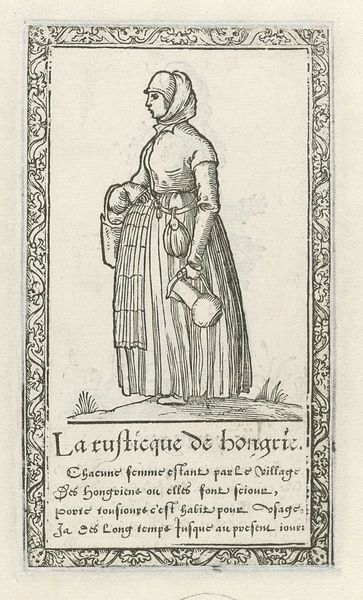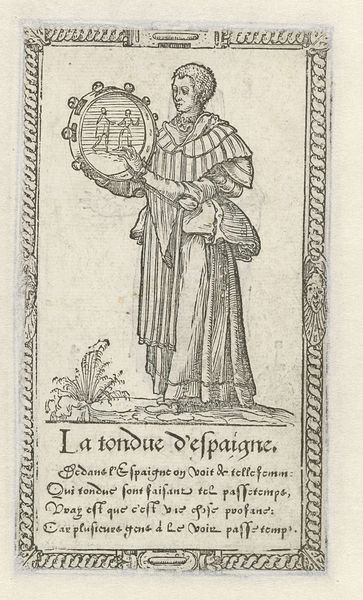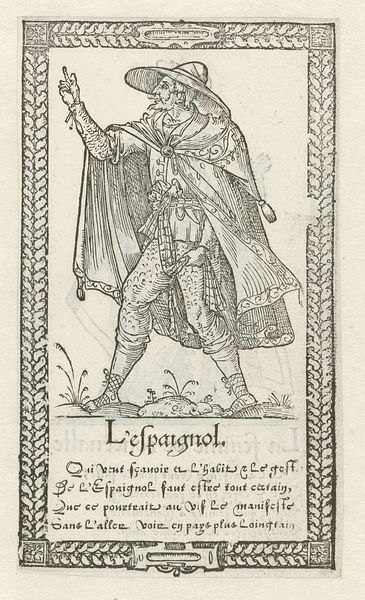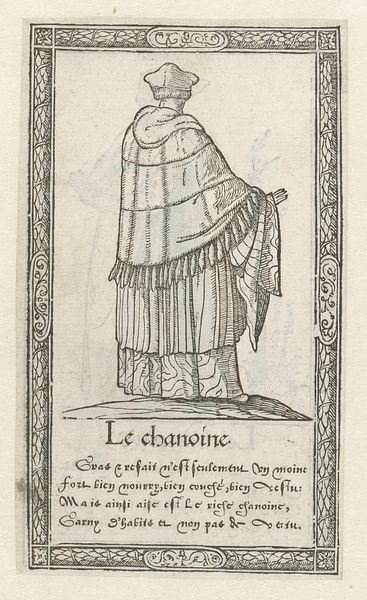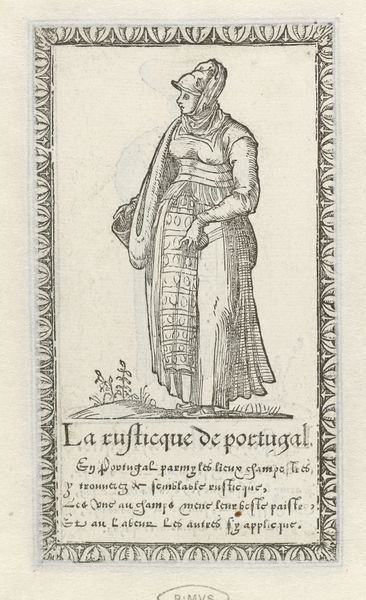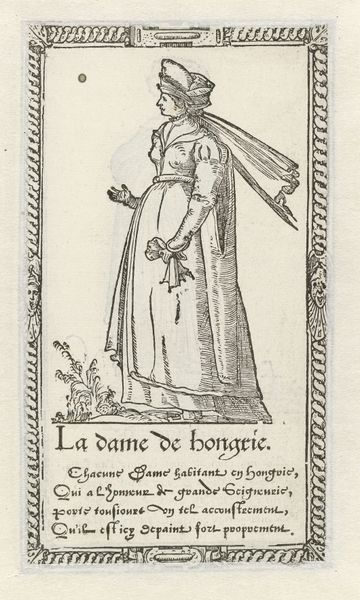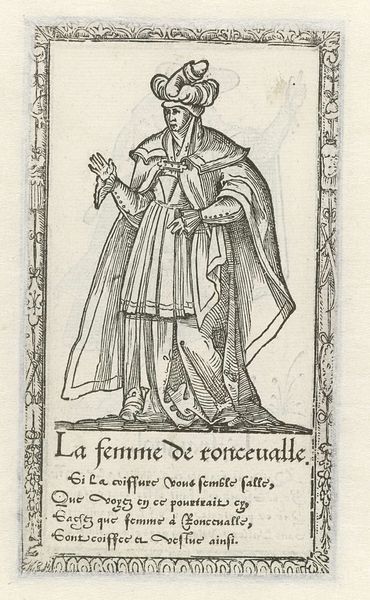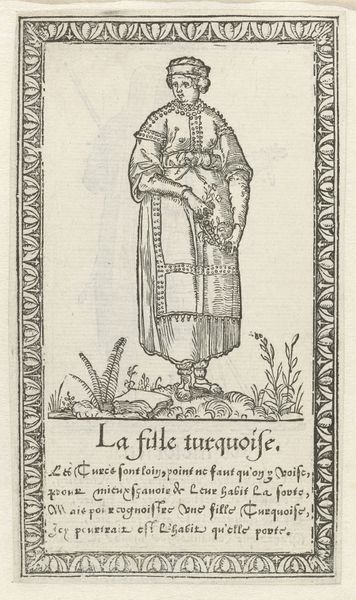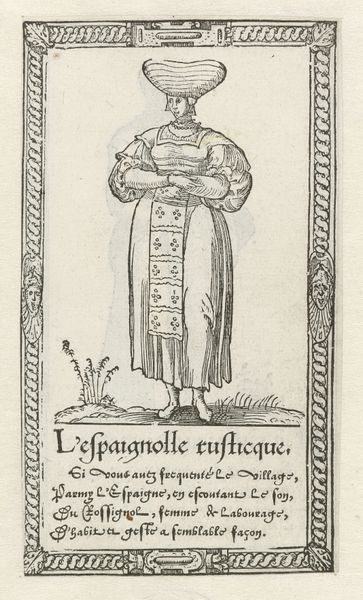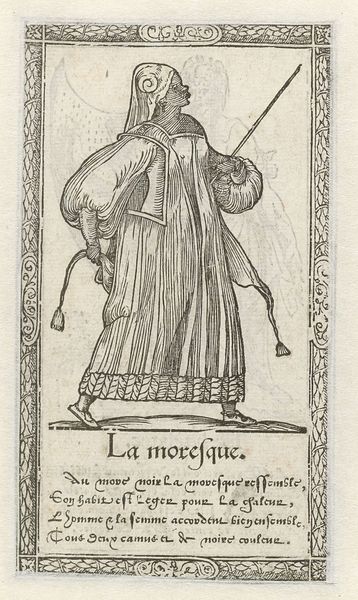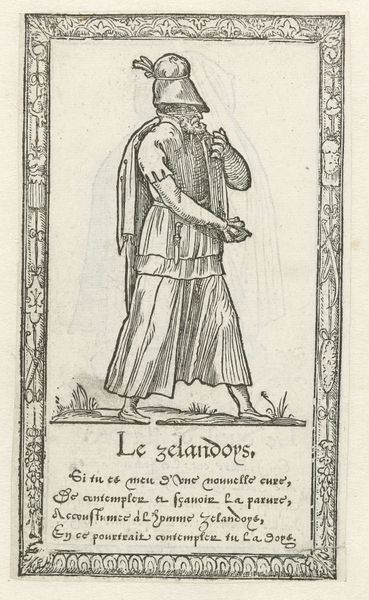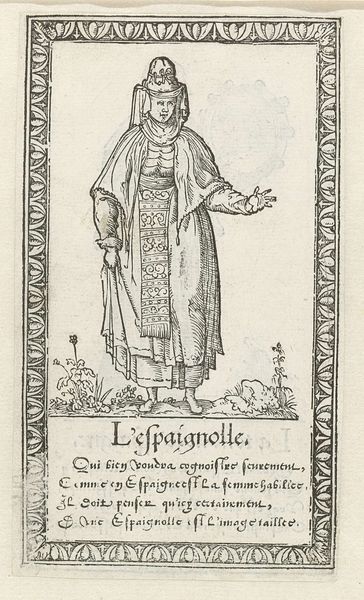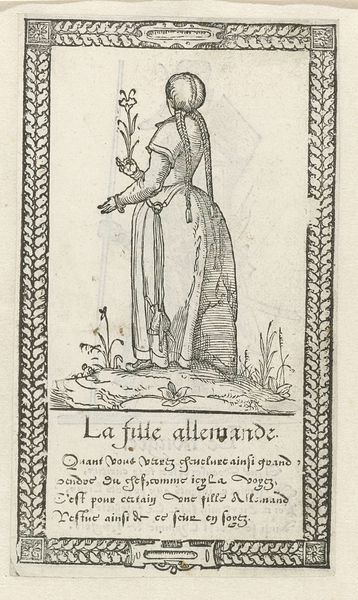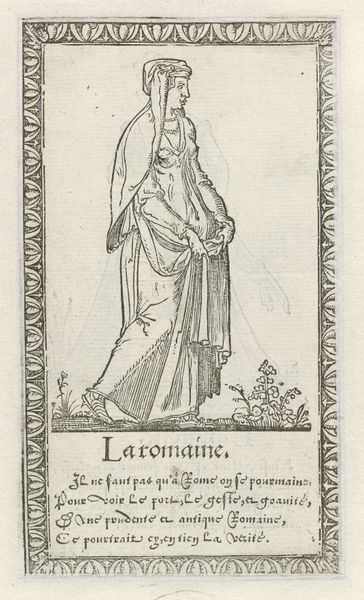
drawing, print, engraving
#
portrait
#
drawing
# print
#
old engraving style
#
figuration
#
pen-ink sketch
#
northern-renaissance
#
dress
#
engraving
Dimensions: height 145 mm, width 85 mm
Copyright: Rijks Museum: Open Domain
This print by François Desprez, made around the 16th century, depicts a Basque woman, or "La bisquine," showcasing distinctive elements of her traditional attire. The most striking feature is the woman's distinctive dress, composed of layered fabrics and geometric patterns. These were potent symbols of regional identity and social status. The dress, while unique to the Basque region, reminds us of similar markers of cultural identity seen across Europe and beyond. Consider the tartan of Scottish clans or the intricate kimonos of Japan. The very act of depicting regional dress elevates the image to a study of cultural identity, mirroring the fascination with local customs that surfaced during the Renaissance. This fascination evolved into the 19th-century romantic nationalism, where traditional clothing became a symbol of national pride. Desprez’s work captures a moment when such symbols were taking root, hinting at the powerful role clothing plays in defining who we are and where we come from. These visual markers carry cultural weight, engaging viewers on a deep, subconscious level, connecting us through time and space.
Comments
No comments
Be the first to comment and join the conversation on the ultimate creative platform.
